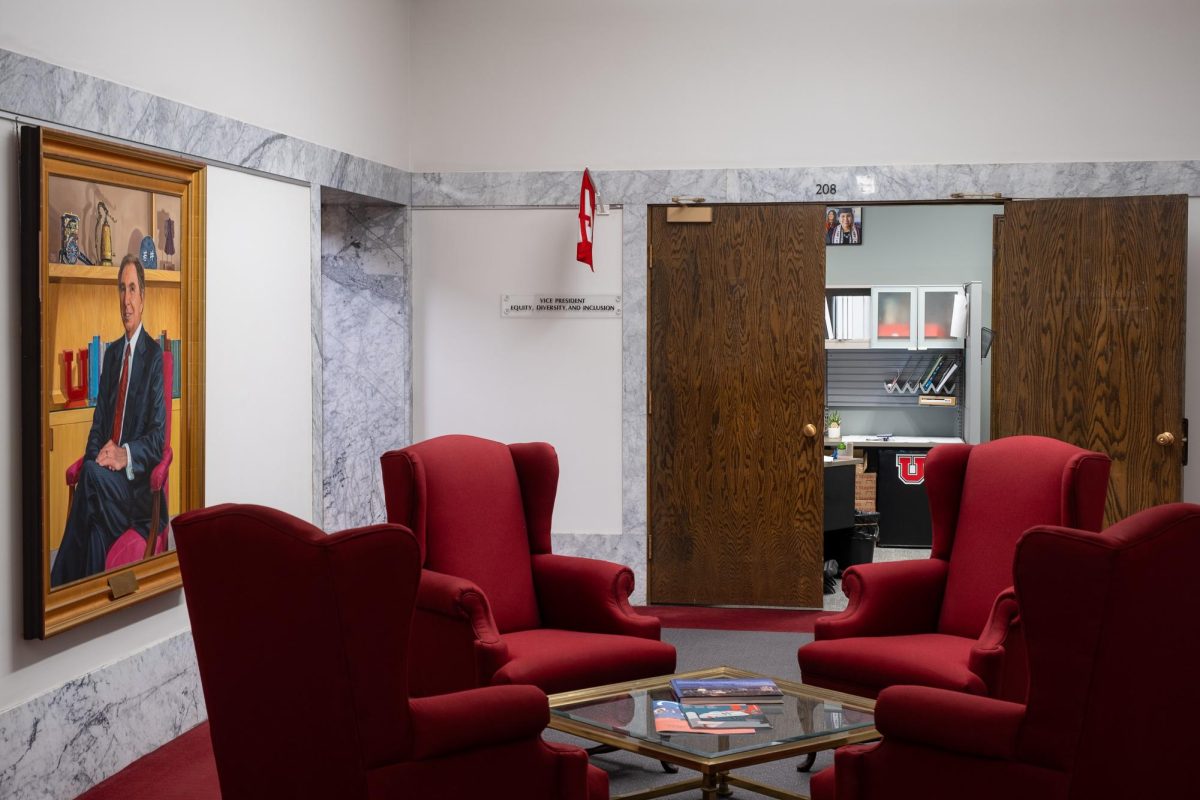Diversity, Equity and Inclusion programs have become an integral part of the University of Utah. The U has five official DEI centers and offices: the American Indian Resource Center, the Black Cultural Center, the Center for Equity and Student Belonging, the Dream Center and Health Equity, Diversity, & Inclusion. But Utah’s 2023 legislative session threatened to eliminate these programs.
In a tweet from July, Sen. John Johnson said he would work on an interim bill to study the “unconstitutional” nature of DEI programs, based on his research findings.
“If any of you want to engage in a serious open dialog on the subject lets do it,” the tweet said. “If you simply want to attack and call people racist please stay out of the conversation. I would like to keep the positive aspects of these departments.”
During the legislative session, Johnson filed S.B. 283, which called for the elimination of DEI offices at all Utah public institutions.
“I ran a bill last year to eliminate the DEI departments at the Utah Universities,” Johnson said in an interview with the Chronicle. “We’d found that we’re spending over $12 million a year statewide. … My initial thought was we need to get rid of these departments that are favoring one race over another.”
In a Senate Revenue and Taxation committee meeting, Johnson substituted the bill with a study of DEI programs in higher education.
“I actually talked to the university presidents, and we decided that we would pull that bill off the table and that we would have an interim study to look at what we might do with that,” Johnson said.
At the committee meeting in February, U President Taylor Randall spoke on the bill.
“By collaborating on Diversity, Equity and Inclusion in higher ed, we’re going to realize many benefits,” he said. “We’re going to gain a deeper understanding of the significant health and education and housing and economic disparities in the state. These disparities are real. We will learn the importance of focusing on socioeconomic disparities. Race and ethnicity alone are not enough. We will learn that universities can be a place of ideas to thrive rather than ideological battles.”

Johnson believes the path forward is through open discussion, specifically from those outside his political party.
“You know, I’ve certainly had a lot of input from the people on the right, and national organizations that way, but I would like some serious, serious discussions with people that really think these programs are important,” he said.
Johnson has already seen the fruit of these discussions, as he reflected on a talk he organized at Weber State between Nikole Hannah-Jones and Robert Woodson.
Jones runs the 1619 Project, which shares stories from the beginning of American slavery. Woodson runs the 1776 Unites project.
“Woodson’s focus is on the success that comes from uniting together under the principles that were laid forth by our founders,” Johnson said. “Woodson actually was a civil rights leader. He was involved with Dr. King for many years.”
Johnson expressed his perception of the benefits that came from the discussion at Weber State.
“It’s good for us to look at those issues, but I would focus more on the things that bring us together rather than things that tear us apart,” Johnson said.
Bryce Cheek, a 2022 graduate of the U, was the president of the National Society of Black Engineers and United Together Against Hate, or the UTAH Group.
As the former president of two student organizations, Cheek said Johnson may be misunderstanding power behind diverse groups.
“My take on it is that his approach is coming from a place of fear than actually thinking that [DEI] is bad,” Cheek said. “We can’t have people just sit on Capitol Hill giving orders and perspective on how things should be if you never actually deal with or talk to the people in the middle class, the everyday people who these bills are affecting.”
“Every group needs people from different backgrounds, different walks of life, different thought processes to handle certain situations,” Cheek added.
Cheek credits much of his personal success to the minority groups he was involved in.
“Minority groups gave me the ability to find my inner voice,” Cheek said. “It put myself in a position that I socially had never been in, and I was able to develop social skills that have helped me in a corporate environment.”
Cheek said Johnson would gain understanding by listening to those outside his party.
“It would put him in other people’s shoes to show them that implementing EDI won’t hurt him, or the people he’s representing, but only benefit the people who are on the other side,” Cheek said.




